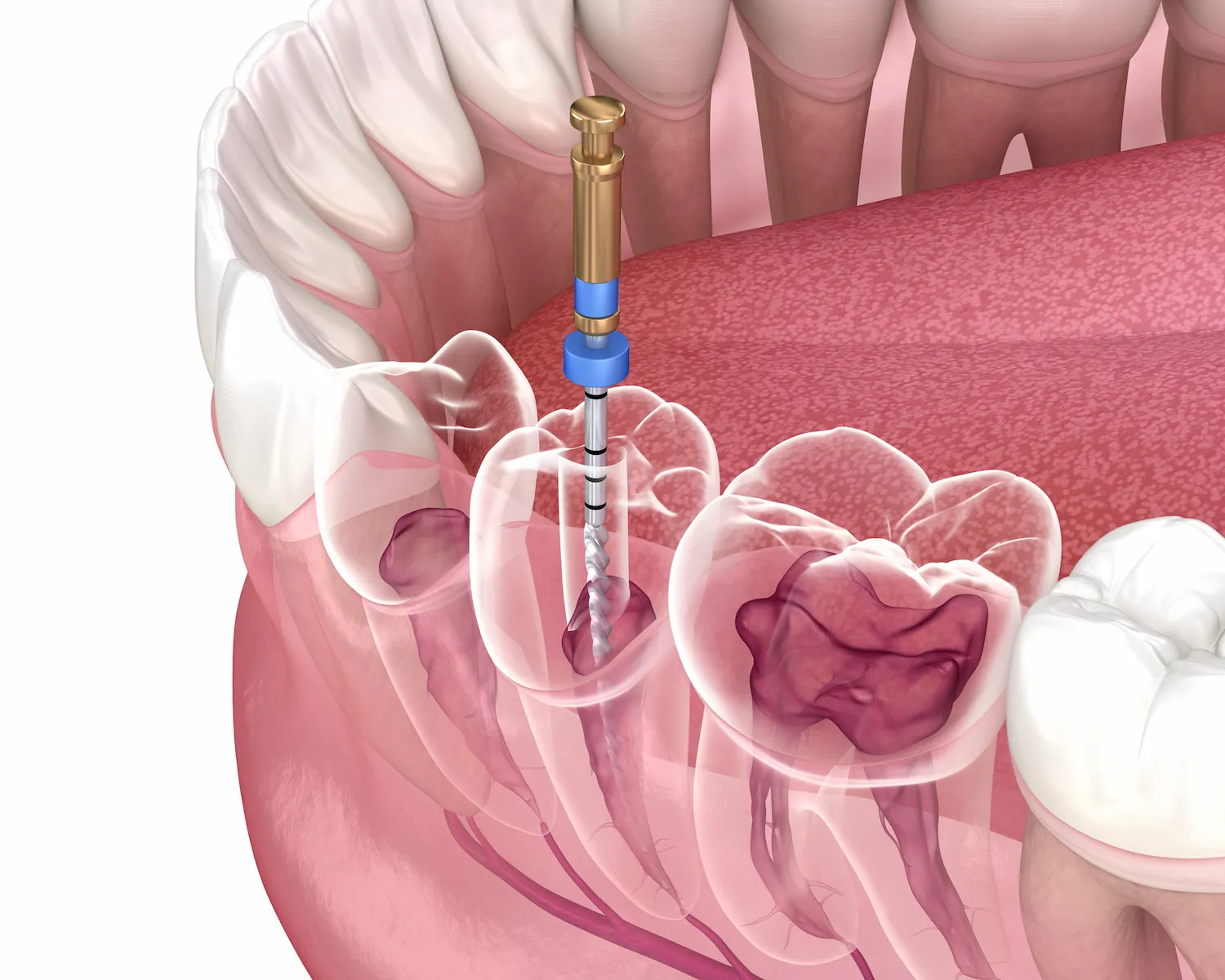What Is Root Canal Therapy?
Root canal therapy is a dental procedure that treats infected tooth pulp. The pulp is located in the center of the tooth, and the infection can cause pain. The procedure removes the infected pulp, cleans and disinfects the canal system, and then seals the tooth to prevent future infections. Despite its reputation, modern techniques and anesthesia make the process no more uncomfortable than having a filling placed.
When Is It Necessary?
This therapy addresses issues directly inside the tooth, including:
- Deep Decay: When tooth decay reaches the inner layers of the tooth, a root canal is often necessary to remove the infection and save the tooth.
- Infections and Abscesses: Infections deep within the tooth can lead to potentially serious abscesses. Root canal therapy cleans out these infections.
- Trauma: Teeth that have been knocked or damaged can sometimes require a root canal if the pulp is affected.
What Happens During the Procedure?
The root canal process involves several steps, usually completed over one or two visits:
- Anesthesia: The area around the affected tooth is numbed to ensure comfort throughout the procedure.
- Pulp Removal: An opening is made in the top of the tooth to access and remove the infected or damaged pulp.
- Cleaning and Disinfecting: The root canal system is thoroughly cleaned and disinfected to remove all traces of infection.
- Filling and Sealing: The cleaned canal is filled with a biocompatible material and sealed to prevent future infections.
- Restoration: The tooth often requires a crown or filling to restore its shape, appearance, and functionality.
What Benefits Does It Offer?
- Pain Relief: A root canal procedure eliminates pain and discomfort from the infected tooth.
- Tooth Preservation: This treatment allows you to keep your natural tooth and maintain your jaw structure and bite.
- Prevents Further Infection: Properly sealing the tooth prevents future infections and more complex dental issues.


